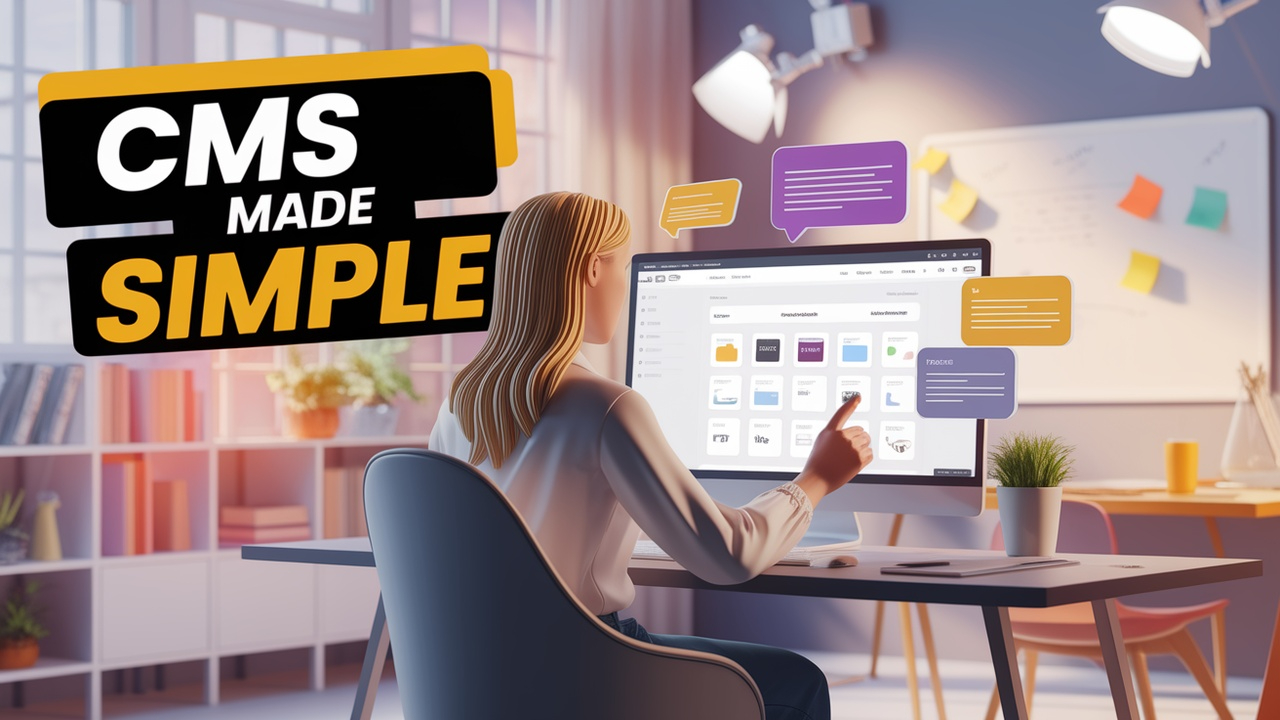Introduction
Imagine trying to build and manage a website without writing code or hiring a full-time developer. Sounds amazing, right? That’s the magic of a CMS, or Content Management System. Whether you're starting a blog, an online store, or a business site, CMS platforms make web creation easier, faster, and more accessible — even for beginners. Let’s explore what a CMS is, why it matters, and how it powers millions of websites around the world.
What is a CMS?
CMS stands for Content Management System. It’s a software application that helps you create, manage, and modify content on a website — without needing to write code from scratch. Think of it as the control panel of your website, where you can update text, upload images, create pages, and publish blog posts, all through an easy-to-use interface.
How Does a CMS Work?
A CMS typically consists of two main parts:
Content Management Application (CMA): This is the part you see — a dashboard where you add or edit content.
Content Delivery Application (CDA): This runs in the background and takes what you’ve added and displays it on your live website.
Together, they handle everything from organizing files to publishing updates — no technical skills required!
Real-Life Examples of Popular CMS Platforms
Here are some of the most commonly used CMS platforms today:
1. WordPress.org (most popular)
Used by over 40% of all websites globally.
Best for blogs, business websites, and eCommerce.
2. Shopify
A CMS designed for eCommerce.
Ideal for beginners looking to sell products online.
3. Wix
Drag-and-drop CMS for small websites and portfolios.
Beginner-friendly with lots of templates.
4. Drupal
More flexible, but requires technical skills.
Preferred by developers building complex sites.
5. Joomla
A balance between WordPress and Drupal.
Good for structured content and user management.
Why Use a CMS?
Using a CMS offers many benefits, especially for beginners:
No coding required
Easy content updates
SEO-friendly features
Plugins and themes for customization
Collaboration with team members
Mobile-responsive control panels
Common Use Cases for CMS Platforms
Blogging
Online Stores (eCommerce)
Business Websites
Portfolio Sites
Educational Platforms
Whether you’re a solo creator or a growing business, a CMS helps you scale your web presence without relying heavily on developers.
Conclusion
If you're planning to create a website in 2025, using a CMS is a no-brainer. It simplifies the process, saves time, and puts you in full control of your content. From blogging to online shops, CMS platforms like WordPress, Shopify, and Wix are here to help you succeed — no coding degree required!
Want to see my more blog? > Click Here <





